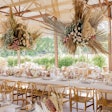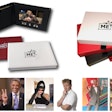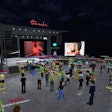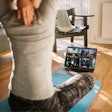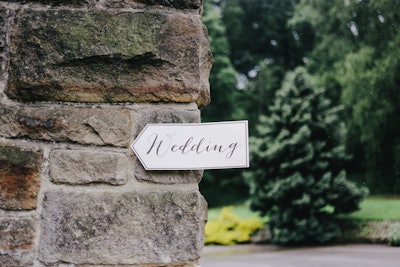
Since many couples put their 2020 wedding plans on pause because of the COVID-19 pandemic, 2021 is shaping up to be one of the busiest years in decades for saying “I do." Right now though, despite the promise of vaccines and a decrease in the number of cases in some areas of the country, precautionary measures related to COVID-19 are still very much necessary. So this year’s celebrations will most likely look a lot like last year’s.
In February, WeddingWire released its “2021 WeddingWire Newlywed Report: COVID-19 Edition,” which features feedback from more than 7,000 couples on how they modified their ceremonies and receptions in 2020 as a result of the pandemic.
As expected, close-to-home outdoor gatherings and micro-weddings were the big trends, but some other insights emerged that can be applied to all types of events, including the ways couples worked with their vendors and communicated with guests. Read on for more key takeaways from the survey as well as other trends we’ve spotted that will be popular in 2021.
1. Book a farm.
In 2020, barns and farms were the most popular wedding venue, right after couples’ own homes (particularly their backyards). Since indoor gatherings face stricter limitations than outdoor locations, backyards, barns and farms—instead of the traditional banquet hall—served as in-demand spots for couples. Last year, nearly 60% of receptions were either fully or partially outside compared to 43% in 2019.
2. Schedule video chats with clients.
According to the WeddingWire survey, one-third of couples used online chats to communicate with their vendors, while 32% scheduled video meetings—up 15% since 2019. Plus, one in 10 couples met 100% virtually with their vendors.
3. Plan a hybrid event.
While some couples went for a full Zoom-only wedding, 43% of couples planned a hybrid-style wedding, adding in a virtual or streaming option to their small, safe gathering. As we’ve seen with corporate events, guests will expect a virtual component going forward, even after we’re allowed to gather in person again.
4. Elevate the F&B.
One advantage to a smaller head count is that planners can splurge on fancier food to feed fewer guests. WeddingWire discovered that couples opted for individual hors d’oeuvres like mini charcuterie boards or added butler or bottle service to their wedding reception in 2020. One-third of couples also increased the catering staff for added health and safety measures.
5. Play with proportions.
To fill a venue and encourage physical distancing, install oversize floral arrangements like a lush ceremony backdrop or floral chandeliers. Plus, consider using lighting to make a large, partially empty space feel cozier.
6. Host a sequel event.
According to The Knot 2020 Real Weddings Study [COVID-19 Edition], more than one-third of couples plan to hold a sequel celebration in the future, such as an anniversary reception, which is a larger celebration that follows an elopement or "minimony" on a chosen anniversary date. Corporate event planners may want to consider planning an in-person follow-up gathering to a one-off virtual event you hosted in 2020.
7. Offer turnkey service.
At the Kimpton Hotel Monaco Salt Lake City, couples can tie the knot in a small, intimate ceremony with a reception of up to 15 people. The package includes cameras, screens, a projector, microphone, mixer and a Zoom account so the ceremony can easily be broadcast to friends and family who couldn’t be there. Couples can also upgrade and hire an on-hand audiovisual tech to facilitate two-way interaction with participants in attendance and those online. Plus, the hotel’s wedding team will ship the same food and beverage components to the at-home guests.
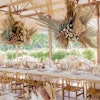



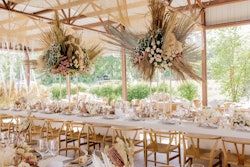
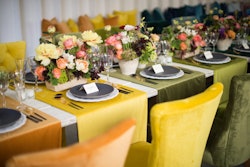
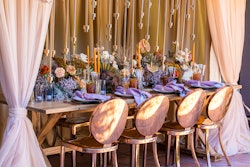
![“One of the harder installs was at Drees Pavilion [in Covington, Kentucky]. It was only a day apart from another filming. We re-carpeted the entire space and set everything up in 12 hours,” Bruner said.](https://img.bizbash.com/files/base/bizbash/bzb/image/2020/08/IMG_6734.5f34173fa6723.png?auto=format%2Ccompress&fit=crop&h=167&q=70&w=250)
